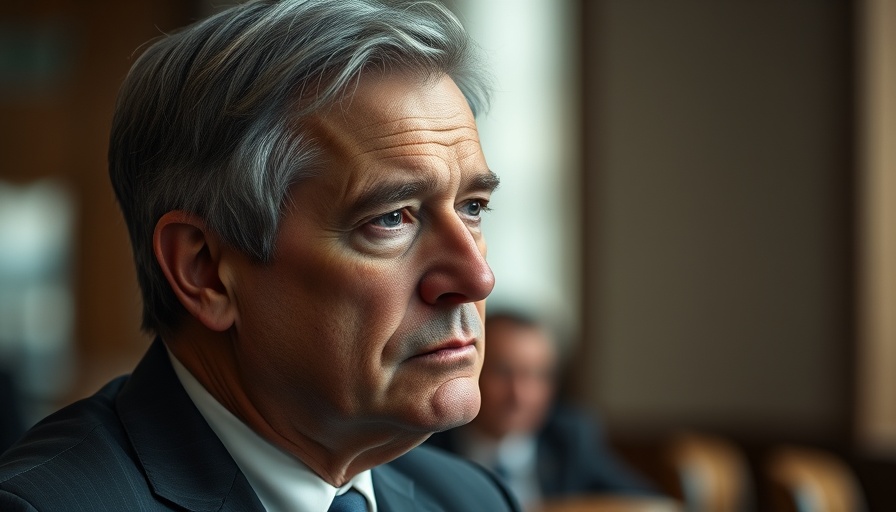
Brazil's Fiscal Landscape: Understanding the Current Freeze on Public Spending
In the intricate world of economics, discussions surrounding public spending often draw sharp lines between contrasting ideologies. Brazilian Finance Minister Fernando Haddad recently stated that the debate concerning the increase in public spending has been effectively "frozen." This announcement reveals a complicated fiscal landscape that is influencing not just economic policy but also affecting investor sentiment across various sectors.
Current Economic Context: Why the Spending Debate Matters
The fiscal policies of any nation have profound implications for its economic stability and growth prospects. Brazil has historically faced challenges in balancing its budget while meeting the demands of its populace. The freezing of discussions on increasing public spending can be seen as an attempt to maintain fiscal prudence amidst rising inflation and public debt concerns.
This move reflects the delicate balancing act that the government must perform. With Brazil being one of the largest economies in Latin America, any decision made regarding fiscal policy can significantly impact investor confidence, portfolio diversification strategies, and overall market trends.
Investor Reactions: Navigating Uncertain Waters
Investors are keeping a close watch on Brazil's fiscal stance. The government’s inability to engage in discussions about increasing expenditures may make investors wary, particularly in sectors such as real estate investing, dividend stocks, and mutual funds that thrive on government stimulation. The uncertain fiscal climate could lead to a more cautious investing approach, particularly among investors focused on international markets.
In this context, risk management becomes crucial. Investment strategies must be reevaluated to ensure that portfolios can withstand potential volatility stemming from Brazilian economic policies. Many seasoned investors may look towards alternative investments or strategies like value investing and inflation protection investments as a hedge against the economic unpredictability.
Future Predictions: Fiscal Policies and Their Impact
With the debate over public spending in a holding pattern, what does the future hold for Brazil? Analysts suggest that fiscal constraints may need to ease if Brazil hopes to surge back into solid growth, particularly post-pandemic. This could compel government officials to eventually revisit discussions around public spending, which could enhance market liquidity and stimulate economic growth.
Additionally, sustainable investing models may gain traction as investors increasingly demand ethical investments that align with long-term economic stability—pushing government agendas to support responsible fiscal policies.
A Broader Perspective: The Global Impact of Brazil's Policies
Brazil, as an emerging market, plays a pivotal role in the global economy. The country’s economic policies resonate far beyond its borders, influencing international investing trends, particularly in emerging markets investments and the commodities market. For instance, fluctuations in Brazil’s policy direction could affect those investing in sectors such as agriculture or energy commodities, all of which are significant to global supply chains.
This interconnectedness means that investors in the U.S. and beyond need to keep a vigilant eye on Brazil. Understanding how fiscal policies here affect global markets is essential for informed investment decisions, especially in sectors like crowdfunding investments and venture capital.
Conclusion: Engaging with Brazil's Economic Narrative
As the debate regarding public spending remains stagnant, investors and stakeholders must adapt their strategies based on current conditions in Brazil. Keeping abreast of developments in government policies helps in making wise investment choices—be it in real estate, bonds, or alternative assets.
Now is the time for investors to evaluate their portfolios through the lens of Brazil’s fiscal health and consider the evolving economic narrative that could influence market dynamics significantly.
 Add Row
Add Row  Add
Add 



Write A Comment